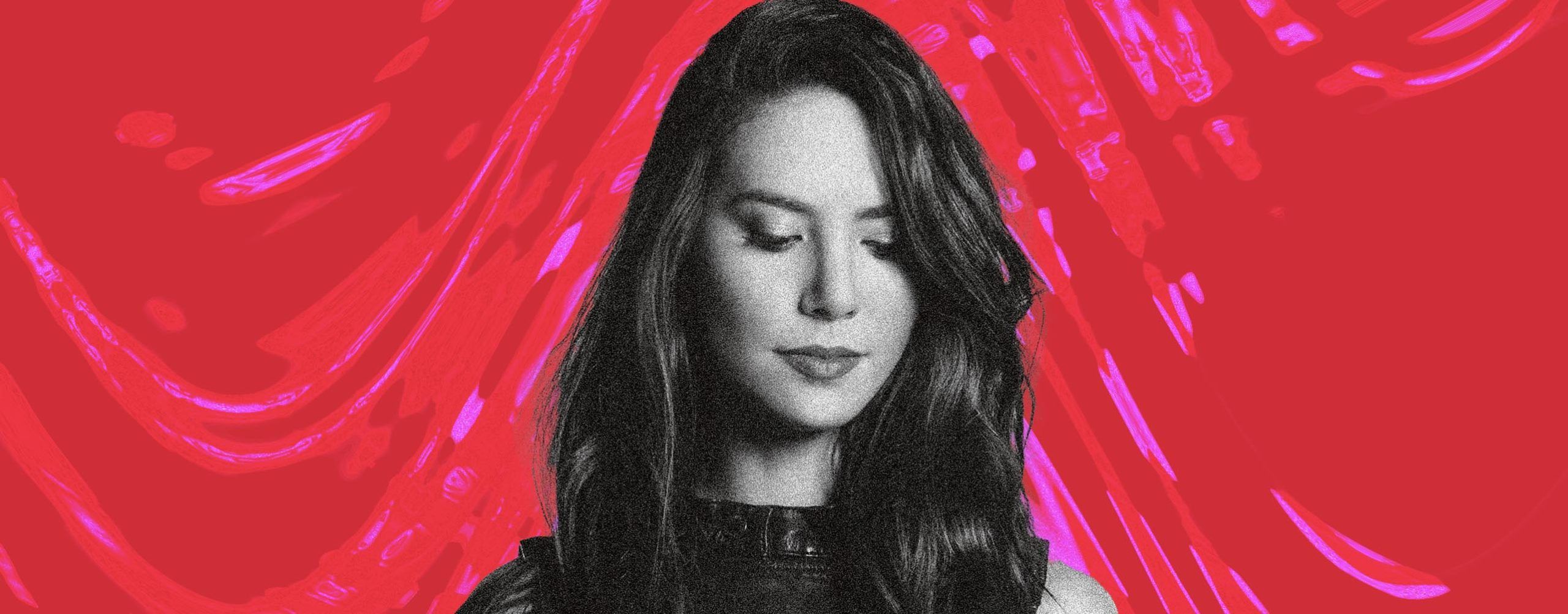Amanda Chang is a Brazilian DJ and producer based in Juiz de Fora, Minas Gerais, and has years of experience producing and researching with modular synthesizers. She has been constantly expanding and discovering new targets in the electronic scene. In the last few years she has been deepening her knowledge at Ernesto Romero’s Buenos Aires Studio, La Siesta del Fauno. Romeo is a well known composer, keyboardist and synthesizer specialist. Amanda recently created the live act project “Chang Rodrigues”, which was presented to the world by FACT Mag in 2021 and made its debut at Rock in Rio 2022.
“To be born, reborn, deconstruct, accept, let go and build dreams”, with those words Amanda presented “Ruínas”, the first EP of her new label, called ACR Records, which is an expansion of the Chang Rodrigues project and has as one of its goals to represent artists from Brazil and Latin America. It has three original tracks called “Conversation”, “Reconstruct” and “Intuition”. She used equipment such as the Moog Mother 32 and Moog DFAM, Digitakt, Arturia minibrute 2S, Arp Sequencer, Vermona Retroverb and her own modular system. You can listen and buy it here.
Could you tell us a little bit about your story? When and how did your interest in music and creation begin?
I’ve been DJing for 14 years, but when I had been DJing for seven years I wanted to go deeper into music and production and that’s when I started with the synthesizers. At that time I met Ernesto Romeo, in Amsterdam, just when I was looking for ways to deepen into the process, because I was working with other things, as a PR and promoter. I couldn’t go on with that if I wanted to devote myself 100% to music.
How did that path come about?
Before that I played in more commercial clubs, more house, I played every weekend, from Thursday to Saturday in Rio or in Buzios, I was traveling all the time and I was on a very different path. People who didn’t know me very well had the image that I was a pretty DJ, that I didn’t have so much content, but rather that I was more into fashion. Then I took a different path, I wanted to make a living from music. Earlier, I had started playing piano, but not so seriously. I was looking for a familiarity with the musical notes and with the production on the computer, I’m still looking for it to this day. With some programs I didn’t feel so comfortable because the technology was difficult for me.
It was difficult for me because I couldn’t be creative, and that’s when I met the modular synthesizers, I was delighted
That’s how I was able to start from scratch, that’s when I understood how sound is built, I could create my own timbres. I didn’t know anything, so it was an excellent opportunity to learn. Ernesto is like my great teacher, I dove right in. I went all out, studying and working and with that I logically closed some doors. I think it is natural when you change from one style to another, but I was aware that at the same time that I was closing some doors, I was opening the door of my heart.
How was the learning process?
I went about six times to Buenos Aires. I stayed there for a month studying a lot. I had classes with Ernesto online before, but I wanted to go to Buenos Aires directly to study with him in person. La Siesta del Fauno is a laboratory and I will always be learning new things. The knowledge of modulars is infinite, that’s something I like a lot. There are systems like buchla, for example, which is another language. To start making sounds you have to study a lot, and so you go deepening concepts of synthesis.
What are you currently focused on?
My focus right now is my label ACR Records, releasing music and then getting together with artists that I am friends with and that I admire. I already have video material that is very rich and beautiful. I’m also focused on finishing my master’s thesis on immersive audio.
Who are your main references in music?
Klauss, Dasha Rush, Suzanne Ciani, Kaitlyn Aurelia Smith, Laurie Spiegel, Lisa Bela Dona, Erica Alves, Laura Diaz, Grace Jones, Bjork, Anvil Fx, Eduardo de la Calle, Satoshi Tomi, Carl Cox, Derrick May, Carl Craig… There are many references. I like new things, but also old things. For example, when I started with Modulars, I did research on artists like Stockhausen, a German composer, as well as Steve Reich, Jean Michel Jarre, Tangerine Dreams, Vangelis, among others.
We have seen that you have a strong connection to yoga and wellness, how does this relate to music?
Yoga came to me at the same time I was studying synthesizers, it was a perfect combination. Then I realized that you can use music to do yoga, there is a benefit of listening to certain frequencies for a while – which can harmonize the chakras- as well as crystals, colors, musical notes. I have a project called Sound Frequencies, which is about yoga techniques together with ancestral instruments and electronic instruments, which are synthesizers. We do sound healing sessions to harmonize the seven main chakras. I am going to release this material soon. The thing is that there are many beautiful projects, but we live in a world with a lot of information, so to release it you have to prepare well, but the material is ready.
I realized that you can use music to do yoga, there is a benefit of listening to certain frequencies for a while.
What do you think about relating wellness, yoga and electronic culture? Are they compatible?
I understand that electronic music is very much associated with drugs, cigarettes, and alcohol, but I see many artists who are not like that, who are looking for other things. I think that music by itself has a very great power. For example, I try to live in balance, for me it is very important to feel my body healthy and also to have moments of partying. It is important to have time to take care of yourself internally, to remember to breathe, but also to share with people, which is very good.
I try to live in balance, for me it is very important to feel my body healthy and also to have moments of celebration.
You performed in 2022 at Rock in Rio, how was that experience and what’s next?
Rock in Rio was amazing, I was very happy to debut with the Chang Rodrigues project.
How do you see the electronic scene in Latin America?
Latin America has many incredible artists. I feel that, for example, in Brazil the live shows with synthesizers are very segmented, we are a small group who do it. I know some artists who are very good, but I think that here people don’t value them. They go abroad, to Europe or elsewhere.
For the moment I think it is important to make connections outside, showing somehow a little of our talents, values and culture. I think labels are one of the excellent ways to make the scene grow.
What is inspiring you musically lately?
I’m listening to Afro-Brazilian religious music (umbanda) to sing, listen to the rhythms and play in the rituals. Recently I’ve been listening to Brazilian artists like Os Tincoãs, Clementina de Jesus, Azmuth, Luedji Luna and other styles like Kitaro Kentu, Tomita, Wendy Carlos and getting inspired by club tracks like Renato Cohen.

